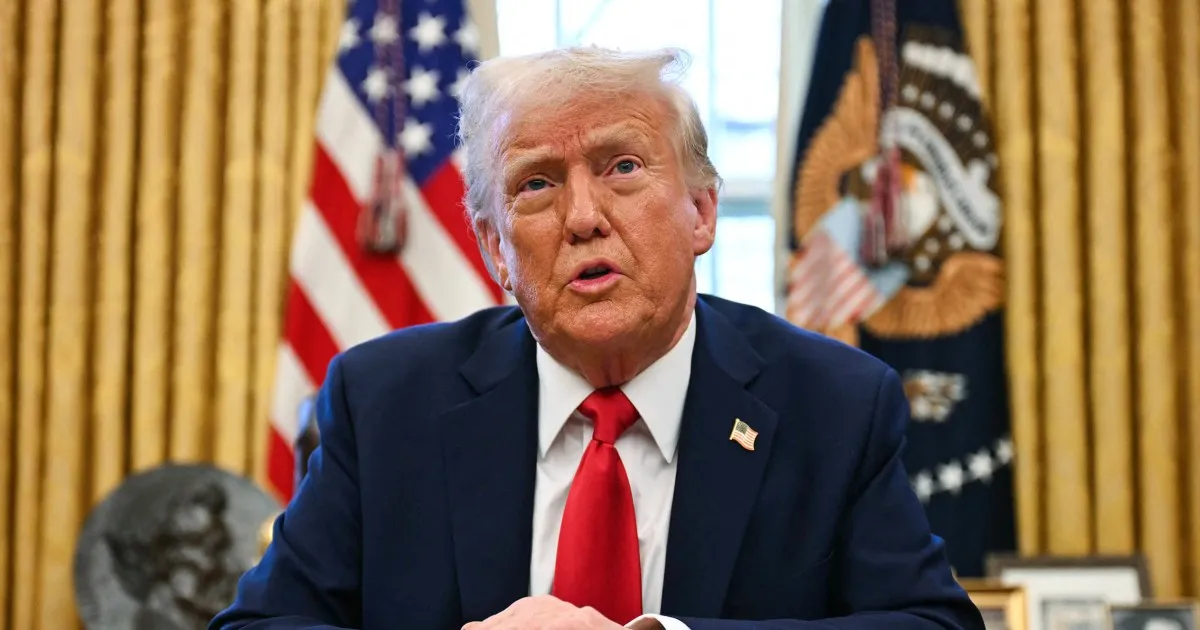
On Friday, President Donald Trump unveiled a budget proposal that outlines significant changes in federal spending priorities. The 40-page document emphasizes cuts to various domestic programs, including those related to public health, education, and clean energy. In contrast, it seeks to increase funding for key areas such as border security and a larger military presence. Delivered to congressional leaders alongside a letter from Office of Management and Budget Director Russell Vought, this proposal sets the stage for upcoming budget discussions.
According to Vought, the proposed budget includes a staggering 23% cut in discretionary funding, amounting to approximately $163 billion. Meanwhile, military spending is projected to rise by 13%. This budget comes at a time when the Republican-led Congress is grappling with the task of crafting a substantial bill that aligns with Trump's priorities, which include tax cuts, increased spending on immigration enforcement, and military enhancements, alongside essential spending cuts in other sectors of the federal government.
The release of Trump’s budget is particularly significant as it coincides with critical government funding talks. Funding is set to expire on September 30, following the passage of a six-month funding bill earlier in March. Unlike the party-line reconciliation bill, this legislation is subject to the 60-vote filibuster rule in the Senate, necessitating considerable support from Democrats to become law in the currently Republican-controlled Congress.
Trump’s budget outlines a variety of steep cuts to well-known government programs. Notable reductions include an $18 billion cut to the National Institutes of Health, a $4 billion decrease in the Low Income Home Energy Assistance Program (LIHEAP), and a $3.6 billion reduction for the Centers for Disease Control and Prevention (CDC). Additionally, the proposal calls for various cuts to clean energy funding, education, scientific research, and international aid.
Conversely, the budget allocates significant funding increases for Trump's priorities, including a $43.8 billion boost for the Department of Homeland Security and $113.3 billion for the Defense Department. Furthermore, it designates $500 million for Health and Human Services Secretary Robert F. Kennedy Jr.'s initiative, dubbed "Make America Healthy Again," which focuses on promoting nutrition and exercise.
This budget proposal is centered solely around discretionary spending and does not address mandatory spending, which encompasses vital safety net programs like Social Security, Medicare, and Medicaid. The omission of these crucial areas signals where difficult decisions about federal spending will ultimately need to be made. Notably, Medicaid continues to be a contentious issue among Republicans as they consider comprehensive legislation regarding Trump's tax and spending priorities.
Trump's budget has garnered mixed reactions from congressional leaders. House Speaker Mike Johnson praised the proposal as a "bold blueprint" that aligns with the values of hardworking Americans and demonstrates a commitment to American strength and prosperity. He stated, "House Republicans stand ready to work alongside President Trump to implement a responsible budget that puts America first."
In sharp contrast, Senate Minority Leader Chuck Schumer criticized the budget, vowing that Democrats will "fight this heartless budget with everything we've got." Schumer condemned the proposal, claiming it represents an "all-out assault on hardworking Americans" through cuts to healthcare and education, while simultaneously favoring tax breaks for billionaires and large corporations. He described the budget as not only fiscally irresponsible but also a betrayal of working people from a "morally bankrupt president."
Senator Susan Collins also weighed in, describing the budget request as "simply one step in the annual budget process." She emphasized that "ultimately, it is Congress that holds the power of the purse." Collins noted that this request arrived late and that key details remain outstanding, expressing "serious objections" to various provisions, especially those impacting programs like LIHEAP, the TRIO program by the Department of Education, and those supporting biomedical research.